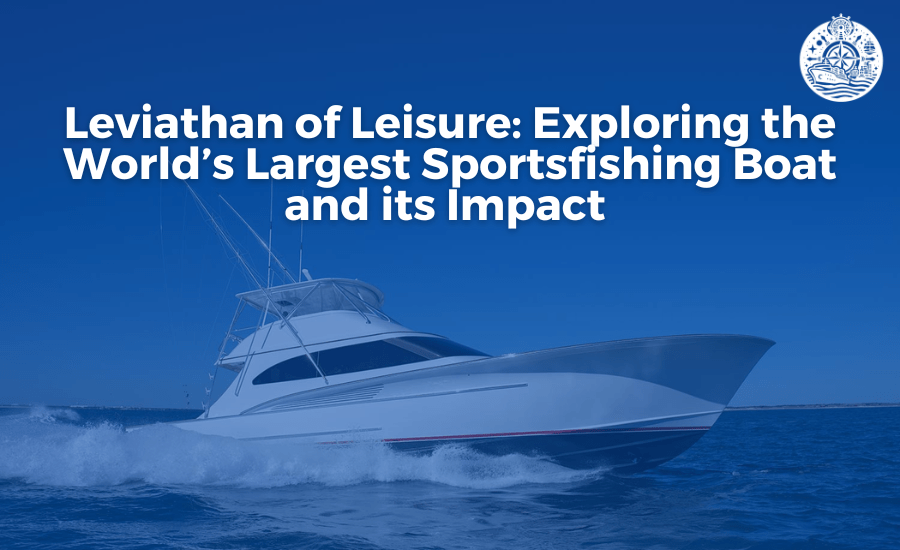
Leviathan of Leisure: Exploring the World’s Largest Sportsfishing Boat and its Impact
The recent launch of the “Alis,” described by Newsweek as the world’s largest sportfishing boat, has sent ripples through the maritime industry and sparked curiosity among enthusiasts and casual observers alike. While its sheer size and opulent features are eye-catching. Also, exploring the deeper nuances of this vessel reveals a complex interplay of economic factors, ethical considerations, and potential impacts on the marine environment.
This blog delves into the story behind the “Alis”, examines its implications within the sportsfishing and yachting worlds, and ponders its broader societal and environmental consequences.
Hooked on Opulence: Unveiling the “Alis” and its Features:
Built at Dutch shipyard Amels and launched in February 2024. The “Alis” boasts a staggering 78-meter length, exceeding its nearest competitor by a significant margin [1]. This leviathan of leisure offers unparalleled luxury, featuring:
- Expansive Amenities. A 16-meter swimming pool, multiple Jacuzzis, a helipad, and a dedicated cinema room cater to extravagant entertainment and relaxation desires.
- Advanced Fishing Technology: State-of-the-art fishing equipment, including a submersible tender and a dedicated fighting chair, promises an unparalleled angling experience.
- Eco-conscious Details: Despite its size, the “Alis” incorporates hybrid propulsion and other green technologies aimed at minimizing its environmental footprint.
Casting a Wider Net: Implications for the Industry:
The “Alis” raises several questions about the future of sportsfishing and yacht design:
- Shifting Preferences: Does it represent a growing trend towards ever-larger and more luxurious fishing vessels, catering to a select few?
- Economic Impact: What are the broader economic implications of such mega-yachts, impacting shipyards, suppliers, and local economies?
- Technological Advancements: Will the “Alis” spur further development in sustainable fishing technologies within the industry?
Ethical Considerations: Beyond the Surface:
The lavish “Alis” also brings ethical concerns to the forefront:
- Sustainability Concerns: Can recreational fishing on such a scale be truly sustainable, considering potential impacts on fish populations and marine ecosystems?
- Social Inequality: Does the ostentatious display of wealth contribute to societal divisions and exacerbate existing inequalities?
- Responsible Practices: Should stricter regulations and ethical guidelines be implemented to ensure responsible use of such vessels?
Navigating the Future: Charting a Sustainable Course:
As the “Alis” embarks on its voyages, the industry and society at large must navigate complex challenges:
- Balancing Sustainability and Recreation: Finding a balance between recreational fishing and the need to protect fragile marine ecosystems is crucial.
- Promoting Responsible Practices: Encouraging ethical fishing practices and responsible use of marine resources is essential for long-term sustainability.
- Technological Innovation: Continued advancements in eco-friendly technologies can mitigate the environmental impact of large vessels.
Conclusion: Beyond the Spectacle:
The “Alis” is a fascinating and controversial entry into the maritime world. While its size and features capture attention, it is crucial to move beyond the spectacle and delve into the broader implications. By fostering dialogue, embracing sustainable practices, and promoting responsible behavior, we can ensure that the future of our oceans remains one of shared enjoyment and responsibility, not excessive indulgence and potential harm.









